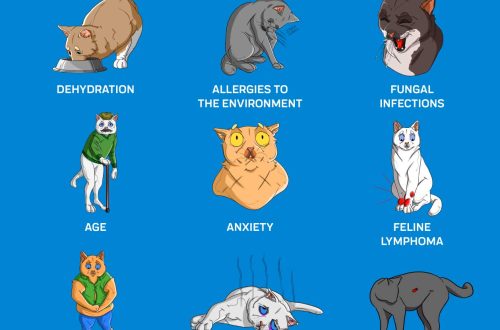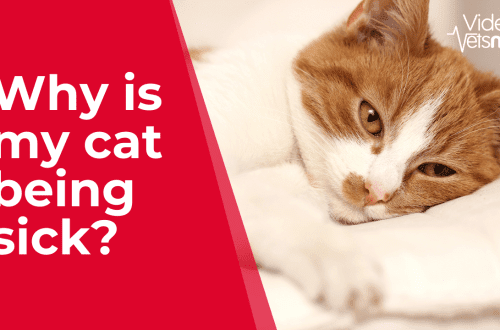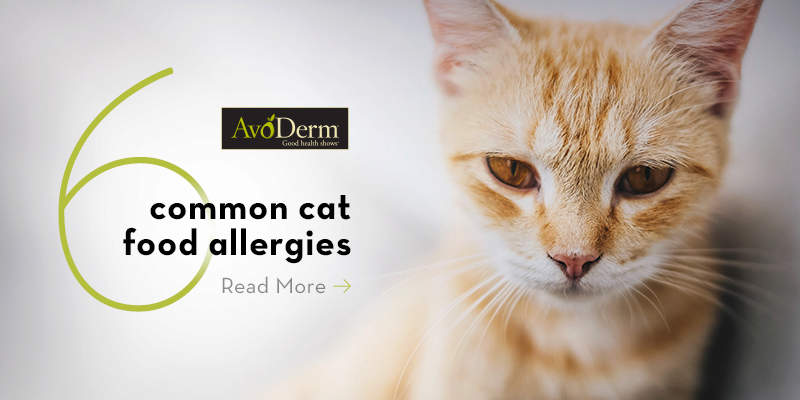
Food intolerance and food allergy in cats
One of the most common complaints from cat owners is that they have sensitive stomachs and often vomit. Sometimes with cats it happens once a week, or maybe twice, but always on the carpet or in some other place that is difficult to clean. While chronic or episodic bouts of vomiting are indeed common, they are by no means the norm. Even if there is a piece of wool or a recently chewed plant on the floor.
There are two most common causes of a sensitive stomach and vomiting: food intolerances and food allergies in cats.
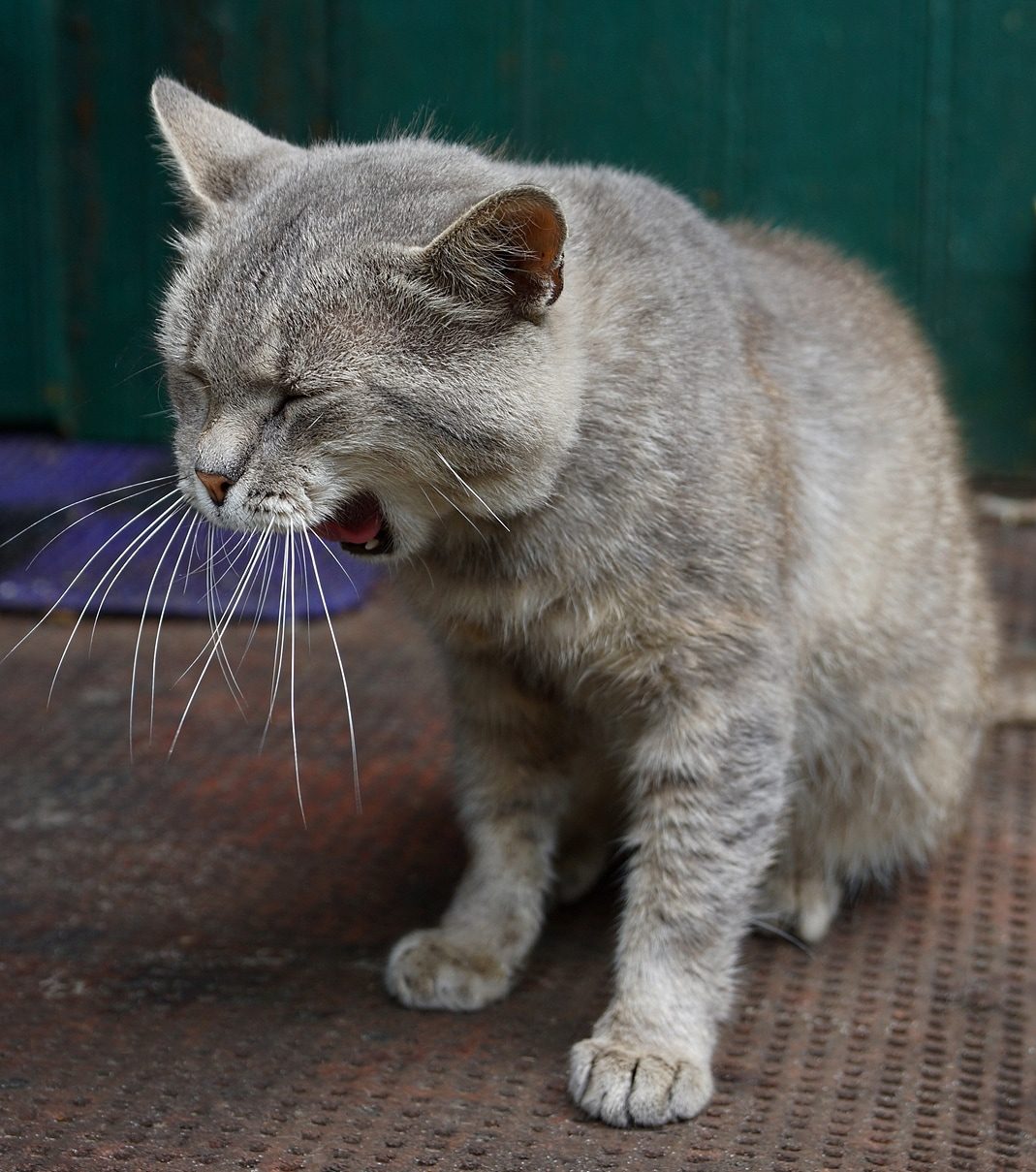
Contents
Food intolerance in cats
Many different internal and external factors can lead to digestive sensitivity in a cat, including food intolerances and food allergies. Although these problems seem similar, they are different things.
Food intolerances can occur in cats of any age. It can be caused by poisoning from spoiled food that the cat has eaten by mistake, or by a sensitivity to a certain ingredient. Stomach sensitivity as a result of food intolerance can occur if the cat has a deficiency of an enzyme necessary for the complete digestion of certain foods, as well as irritable bowel syndrome or stress.
Stress in a cat can be caused by a variety of events: travel, moving, new pets in the family, dental disease or joint pain. If your cat is vomiting or having diarrhea and you suspect a sensitive stomach, don’t change the food right away. This disorder may be due to another medical reason. If vomiting or diarrhea persists or does not resolve within 24 hours, contact your veterinarian.
Easily digestible products
Some pets may need cat food for sensitive stomachs. The owner may not need to eliminate specific ingredients from the cat’s diet, but the type or formula of the food may be associated with an intolerance problem. One solution to a cat’s stress-induced digestive problem is to switch to easily digestible foods.
From a pet food research perspective, digestibility refers to the ease with which pets can extract and digest essential nutrients from a food. According to the Cameron County Society for the Prevention of Cruelty to Animals, the factors that most affect digestibility are feed ingredients, their quality, and the processing methods used to make the feed. Sensitive stomach foods, including Hill’s Prescription Plan, are formulated with a combination of soluble and insoluble fibers, minerals and healthy fats. They make them nutritious, but at the same time gentle on the cat’s digestive system.
How does a food allergy manifest in a cat?
In contrast to intolerance, food allergies can manifest themselves both from the intestines and from the skin. It represents an abnormal immune response to a generally safe ingredient. In cats, an allergic reaction usually occurs to a source of protein, such as fish or chicken meat.
Food allergies in cats show symptoms most often between the ages of 2 and 6 years. For signs of it to appear, the animal must be frequently exposed to the relevant allergen, for example, eat it every day. Such signs may include vomiting, diarrhea, flatulence, loss of appetite, pruritus, hair loss, or reddening of the skin.
It’s hard to believe, but grains are not the most common cause of food allergies in cats. Veterinary Practice News writes that common indigestion often leads concerned owners to misdiagnose a “food allergy.” According to the Cummings Veterinary Medical Center at Tufts University, the most common sources of allergies in cats and dogs are chicken, beef, dairy and eggs. In cats, one of the leading places is occupied by fish.
Food allergies in cats: what to do
If the owner or veterinarian suspects a cat has a food allergy, it may be time to try a hypoallergenic cat food. The specialist will give you the best nutritional advice. The only way to accurately diagnose a food allergy is to gradually introduce a new food into the diet with strict adherence to the rules.
Do not change your pet’s food on your own. In sensitive stomach situations in cats, owners often make this mistake. Changing diets will only make the problem worse and make it harder for the veterinarian to find the right way to get rid of the animal’s dietary problems.
If the process of trying out a new food is done correctly, it takes about 10-12 weeks. During this time, the cat should eat only this food and nothing else – no treats, no scrambled eggs from the owner’s table and no cat toothpaste, unless approved by a veterinarian.
If the cat does have a food allergy, any stomach problems will disappear in 2-4 weeks. It will take longer to resolve external symptoms, such as itchy skin. For skin problems, testing a new food is recommended for at least 12 weeks. This is how long it takes for a cat to completely renew its outer layer of skin cells. By comparison, according to Business Insider, it takes about 39 days for a person’s skin to renew itself. If the owner conscientiously complies with all the rules for trying out a new food, but the cat still has problems, then it is not a food allergy. It’s time to check the cat for other problems.
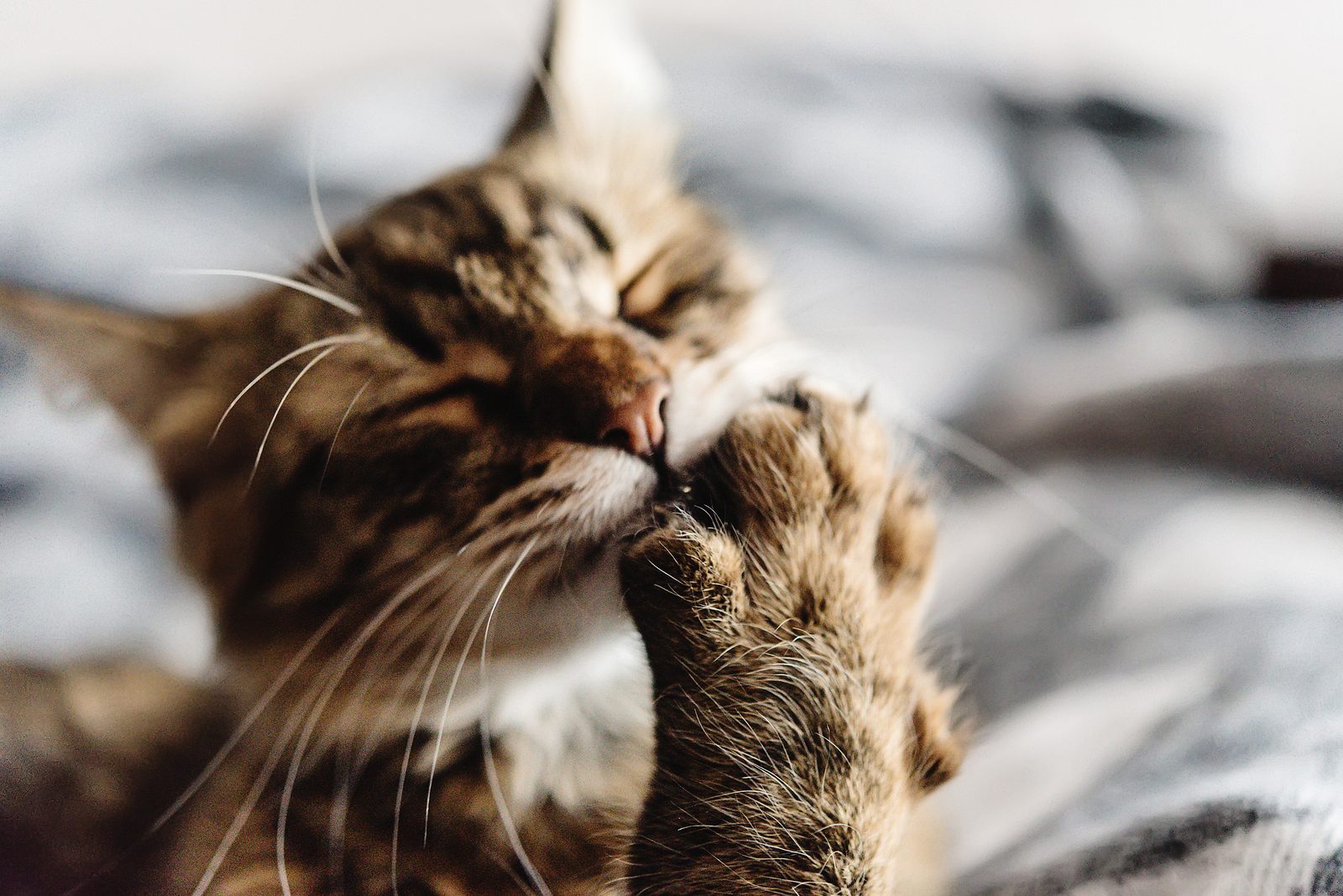
Cat food allergies: what food to choose
It is better to immediately buy the cat food recommended by the veterinarian. All testing instructions must be carefully followed. If the cat steals something from the owner’s table, you will have to start the test again. Probably, such food will cost more than cat food in the supermarket. But this is an investment in the health of the pet, and in this case, food is really medicine.
A truly hypoallergenic cat food formulated with hydrolyzed proteins. This means that they are broken down so that the cat’s body does not recognize the allergen and processes the food properly.
Another solution is to use a feed with an unfamiliar protein, such as duck or venison. Cats cannot get these protein sources from other foods. If treats are an important part of the cat’s training process, hypoallergenic varieties can be used, but in any case, you should consult with your veterinarian first.
Whatever the causes of tummy problems in your beloved pet, a veterinarian will definitely help find a way to solve them.
See also:
Is it possible for a cat to have milk, sweets, kefir, dog food, raw meat and other products
The cat vomits after eating: what to do?
Blood tests in cats: how to prepare the animal



